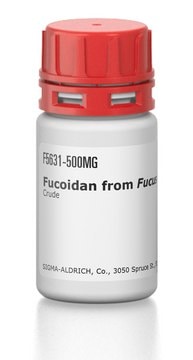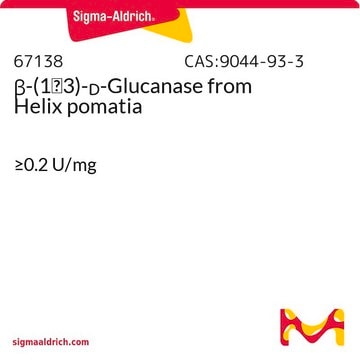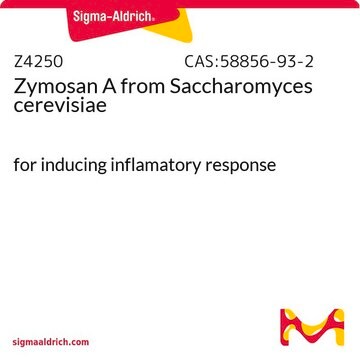L9634
Laminarin from Laminaria digitata
polysaccharide substrate for laminarinase
Synonym(s):
Laminaran
About This Item
Recommended Products
biological source
algae (Laminaria digitata)
Quality Level
form
powder
optical activity
[α]20/D -20 to -5 °, c = 4% (w/v) in water
color
beige
useful pH range
5
solubility
water: 10 mg/mL, clear to slightly hazy, colorless to light yellow
storage temp.
room temp
InChI
1S/C18H32O16/c19-1-4-7(22)10(25)11(26)17(31-4)34-15-9(24)6(3-21)32-18(13(15)28)33-14-8(23)5(2-20)30-16(29)12(14)27/h4-29H,1-3H2/t4-,5-,6-,7-,8-,9-,10+,11-,12-,13-,14+,15+,16?,17?,18?/m1/s1
InChI key
DBTMGCOVALSLOR-VPNXCSTESA-N
Looking for similar products? Visit Product Comparison Guide
General description
Application
- as a stimulant to study its effect on the respiratory burst using haemocytes of P. vannamei
- as a carbon source to study its effect on enzyme production using Pichia membranifaciens culture
- as a carbon source for Polaribacter sp. culture
Biochem/physiol Actions
Other Notes
Substrates
Storage Class Code
11 - Combustible Solids
WGK
WGK 3
Flash Point(F)
Not applicable
Flash Point(C)
Not applicable
Personal Protective Equipment
Certificates of Analysis (COA)
Search for Certificates of Analysis (COA) by entering the products Lot/Batch Number. Lot and Batch Numbers can be found on a product’s label following the words ‘Lot’ or ‘Batch’.
Already Own This Product?
Find documentation for the products that you have recently purchased in the Document Library.
Customers Also Viewed
Our team of scientists has experience in all areas of research including Life Science, Material Science, Chemical Synthesis, Chromatography, Analytical and many others.
Contact Technical Service









